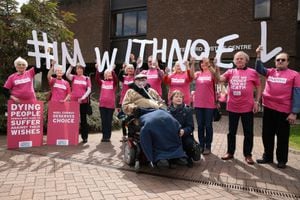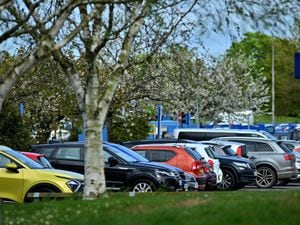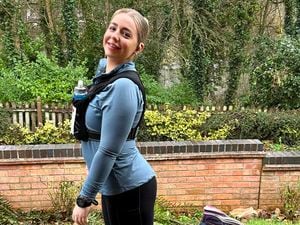Noel Conway: Terminally ill Shrewsbury man must wait to hear decision on right-to-die appeal
A terminally ill motor neurone disease sufferer from Shrewsbury who wants to die a “peaceful and dignified death” will have to wait until next week to hear if his bid to change the law on assisted dying will go to the UK’s highest court.

Noel Conway vowed to continue his legal fight after losing a Court of Appeal challenge in June and a panel of three justices met today to consider his application to appeal to the Supreme Court.
A decision from the Supreme Court is now expected within a week.
The Supreme Court justices today heard that Mr Conway wants to be able to choose for himself when and how he dies and wants respect for his “dignity and autonomy” when it comes to his death.
His lawyers asked the court for permission to challenge an earlier ruling in his case against the Government over current legislation which prevents him from being helped to die.
The 68-year-old, from Shrewsbury, who watched a livestream of the proceedings from his home, says that being forced to choose between “unacceptable options” to end his life is “barbaric”.
He wants medical assistance to die when he has less than six months left to live, still has the mental capacity to make the decision and has made a “voluntary, clear, settled and informed” decision.
Mr Conway’s lawyers told the court that the retired lecturer does not accept that withdrawal of his “non-invasive ventilation” (NIV) – which he needs 23 hours a day – would be an acceptable way for him to end his life.
Lord Pannick QC, for Mr Conway, told the court it may take hours or even days for a person to die after their ventilation has been removed.
He said: “His instructions to me are that he is concerned that he does not know how he would feel under sedation.

“In particular, the drowning sensation which he currently experiences when his NIV is temporarily removed, whether he would be able to hear his family talking to him or feel their touch.
“I say this point matters. It is Noel Conway’s dignity and autonomy that matters – not the view of doctors or, with respect, the court.”
Justification
Lord Pannick said the case raises the same fundamental issues as that of Tony Nicklinson, a man with locked-in syndrome who took his fight for an assisted death to the Supreme Court.
He added: “Because of the need to respect autonomy and dignity, the Government must show compelling justification for preventing a person of full mental capacity from securing assistance to end their life, when they feel that their continued life is incompatible with their personal dignity.
“Mr Conway recognises it is of course essential to balance his interests with the need to protect the vulnerable.”
Lord Pannick said the issues for the court to consider are “extremely difficult and extremely important”.
He also told the court that Paul Lamb, a paralysed former builder who took part in the challenge brought by Mr Nicklinson, wishes to join the case.
Approach
Mr Conway, who lives near the Wrekin with his wife Carol, lost a Court of Appeal challenge in June against an earlier High Court rejection of his case that the “blanket ban” on assisted dying was an unjustified interference with his human rights.
Urging the panel of three justices to refuse permission to appeal, James Eadie QC said the Court of Appeal had “applied the correct approach to the issues” in the case.
He also told the court that there have been “all sorts of advances” made in palliative care since Mr Nicklinson’s case was considered.
He said such advances meant that, however long it may take Mr Conway to die following the removal of ventilation, his death would be “capable of being managed a great deal more effectively and sympathetically” than in the past.
In a statement after the Court of Appeal ruling, Mr Conway said: “I will keep fighting for myself and all terminally-ill people who want the right to die peacefully, with dignity and on our own terms.
Supported
“I want to thank my family, friends and members of the public who have shown such overwhelming support and who continue to spur me on in this fight.”
Lady Hale, hearing Mr Conway’s case with Lord Reed and Lord Kerr, said: “We recognise that this is an incredibly difficult matter.”
She said the court will consider whether to grant permission to appeal and announce its decision later.
If Mr Conway is granted permission, a date will be set for a full hearing, but if he is refused an appeal his case will come to an end.
Mr Conway, who is supported by the campaign group Dignity In Dying, is too unwell to travel to London for the Supreme Court hearing.
He is now dependent on a ventilator for up to 23 hours a day and only has movement in his right hand, head and neck.





